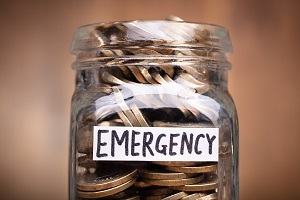Homeowners association fees are collected in most — if not all — planned residential communities. If you’re thinking about joining one, it’s normal to ask questions like, “What are HOA fees?” and “What do HOA fees cover?” In this article, we will provide an in-depth explanation of HOA fees and what they are used for as well as answer questions someone might ask prior to joining an HOA.
In this article:
- What Do HOA Fees Cover? Specific Breakdown of Fees
- What is HOA fee?
- What are HOA fees used for?
- How much are average HOA fees?
- What do HOA fees cover?
- Other Important Questions to Ask Before Joining an HOA
What Do HOA Fees Cover? Specific Breakdown of Fees
Before we discuss the breakdown of HOA fees, here are some basic information that you need to know:
What Is an HOA Fee?
If you buy property within a community that is governed by an HOA, you automatically become a member of the association. Some advantages of living in an HOA include free access amenities and facilities, security, and regular maintenance. In exchange, community members are required to pay HOA dues and other assessments each month.
What are HOA Fees Used For?
Association fees are used to pay expenses related to maintaining the community such as clubhouse utility bills, pool cleaning services, and insurance premiums.
How Much Are the Average HOA Fees?
 The average HOA fee is about $200-300 per month. However, the amount that an HOA charges its members will vary depending on the size of the community, amenities provided, maintenance costs, state and local ordinances, and other factors.
The average HOA fee is about $200-300 per month. However, the amount that an HOA charges its members will vary depending on the size of the community, amenities provided, maintenance costs, state and local ordinances, and other factors.
For example, the more amenities offered by a community, the higher the HOA fee will be. Board members are the ones who decide on the HOA fees and payment schedules.
What Do HOA Fees Cover?
It’s important to know what your HOA fees cover so that you will not be caught off-guard whenever the HOA bill comes.
1. Utilities
HOA fees are used to pay utility bills for amenities and services provided by the HOA. This includes electricity, gas, water and sewage, trash and recycling, phone, and internet bills.
2. Maintenance and Repairs
HOA maintenance is necessary to prolong the lifespan of your community assets. For instance, playgrounds, fitness equipment, swimming pools, HVAC systems, security cameras, and streetlights are just some of the components that need to be regularly maintained. If an asset breaks down, the board will use allocated funds from your HOA fee to pay for the repair costs.
3. Employee Salaries/Vendor Payments
Your HOA fee also covers employee salaries and vendor payments. To protect community assets and property, the board may have personnel for management, maintenance, security, and landscaping, among others. If your community offers more services, such as a doorman or concierge, there may be a higher HOA fee.
4. HOA Management Company
If your association is working with an HOA management company, your HOA fee will also be used to pay the HOA manager. Larger associations may also employ a management staff. Homeowners will be charged for management services. In return, HOA management takes care of day-to-day operations, accounting and financials, and other community matters.
5. Insurance
A significant portion of your HOA fee will be used to pay your association’s insurance premiums. Insurance is an essential expense since it helps protect your community in case of accidents, legal disputes, financial risks, theft, natural disasters, and vendor liabilities.
For example, if the clubhouse roof was damaged by a storm, insurance may be able to cover the entire replacement cost. Otherwise, the HOA will have to pay for the expense out of pocket. If the association does not have enough money, it may have to increase HOA fees.
6. Reserve Funds
 A portion of your HOA fee goes to the HOA’s savings account. Also known as the reserve fund, the account is used for emergencies, unexpected expenses, and planned capital improvement.
A portion of your HOA fee goes to the HOA’s savings account. Also known as the reserve fund, the account is used for emergencies, unexpected expenses, and planned capital improvement.
If pipes burst in a communal area and cause significant damage, the HOA will use the reserve fund to pay for necessary repairs and replacements.
The reserve fund is also used to anticipate future large-scale projects such as a roof replacement. Instead of collecting the entire amount from homeowners, the board will charge a nominal amount each month over a period of 10 years. When it’s finally time to replace the roof, the reserve fund will have enough money to cover the expenses.
7. Special Assessments
Special assessments are not part of your regular HOA fee. However, if the association has urgent expenses that cannot be funded by the reserve account, residents may be required to pay a special assessment on top of the usual HOA fee.
Other Important Questions to Ask Before Joining an HOA
Apart from “What do HOA fees cover?” there are other important questions that any prospective homeowner should ask before joining an HOA.
1. What is the current HOA fee and what has it been in the past?
 Ask your potential HOA about current and past fees. By understanding the past HOA fees, you will be able to see if prices have stayed the same or risen. If the HOA fees have gone up, don’t hesitate to ask for the reasons.
Ask your potential HOA about current and past fees. By understanding the past HOA fees, you will be able to see if prices have stayed the same or risen. If the HOA fees have gone up, don’t hesitate to ask for the reasons.
Rising HOA fees could simply be due to inflation or more capital investments for the community. On the other hand, it could also indicate a larger problem such as poor financial management or misallocation of funds. A good HOA will be able to provide valid answers and provide information quickly.
2. Are there more planned HOA fee increases?
You should also ask about planned fee increases in the future. If fees are already prepared to increase, this can help you adjust your expenses in the coming months or years. This will also help you see how organized an HOA is. You can get a glimpse of how they deal with finances and planning.
3. What do my fees cover?
Even though we already answered “What do HOA fees cover?” earlier, it doesn’t mean that you should no longer ask this question to your HOA. The HOA should be able to provide you with an exact breakdown of expenses and their corresponding costs.
As a member, it is your right to know where the HOA fees are being spent or saved. Asking this question also helps you see that the money isn’t being wasted or misused. Overall, the goal of an HOA is to ensure that a community is looking and functioning at it’s best for the benefit of all the residents.
4. How large is the HOA reserve fund?
Knowing how much money is in the HOA’s reserve fund will help you estimate if there is an emergency. Can the HOA rely on their reserve fund or will special assessments be levied? If you are joining a newer association, keep in mind that they may not have a substantial reserve fund just yet.
Meanwhile, an established community should have a proper reserve fund. If not, try to ask why. Is it because there was a recent emergency? Or is there another reason for the diminished funds?
5. Is the HOA capable of proper financial management?
 If you are joining a self-managed HOA, you will want to see if they are capable of proper financial management. If not, the community may be more susceptible to financial mistakes that will end up costing you more in the long run.
If you are joining a self-managed HOA, you will want to see if they are capable of proper financial management. If not, the community may be more susceptible to financial mistakes that will end up costing you more in the long run.
Many HOAs decide to bring in a management company to handle more complex community matters, such as accounting and financials. This might mean a higher HOA fee but consider the benefits that a management company can provide. An HOA manager will be able to take care of community management matters as well as assist the board with all their needs.
Understanding HOA Fees Can Help You Become a Good Homeowner
By now, you should no longer be asking “What do HOA fees cover?” We covered both general and specific aspects to provide you with a better understanding of association fees. The moment you sign the HOA contract, you are obligated to pay HOA fees on the agreed schedule.
Knowing where your money is being spent and seeing all the work done to your community will also encourage you to become more compliant about HOA fees. In turn, you become a good homeowner that is actively supporting the community. If you have additional questions about HOA fees, as well as ways to improve your HOA, don’t hesitate to give us a call.
RELATED ARTICLES:

